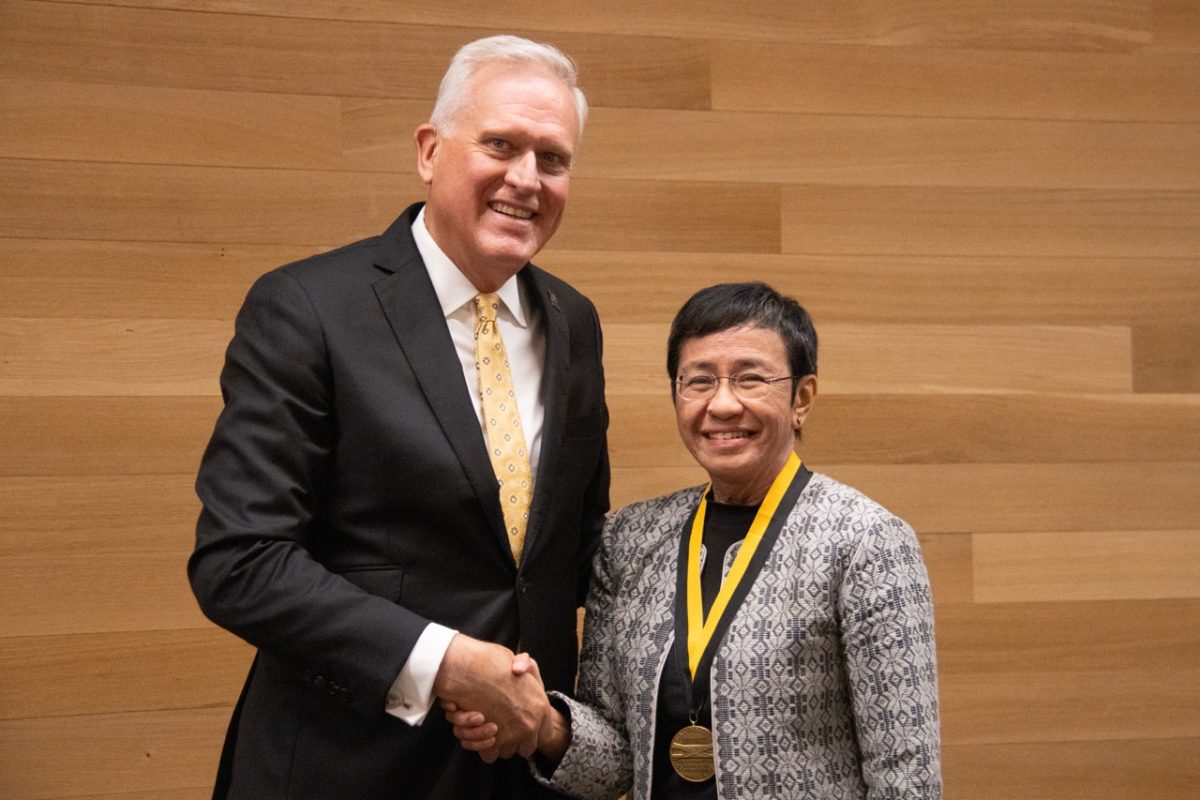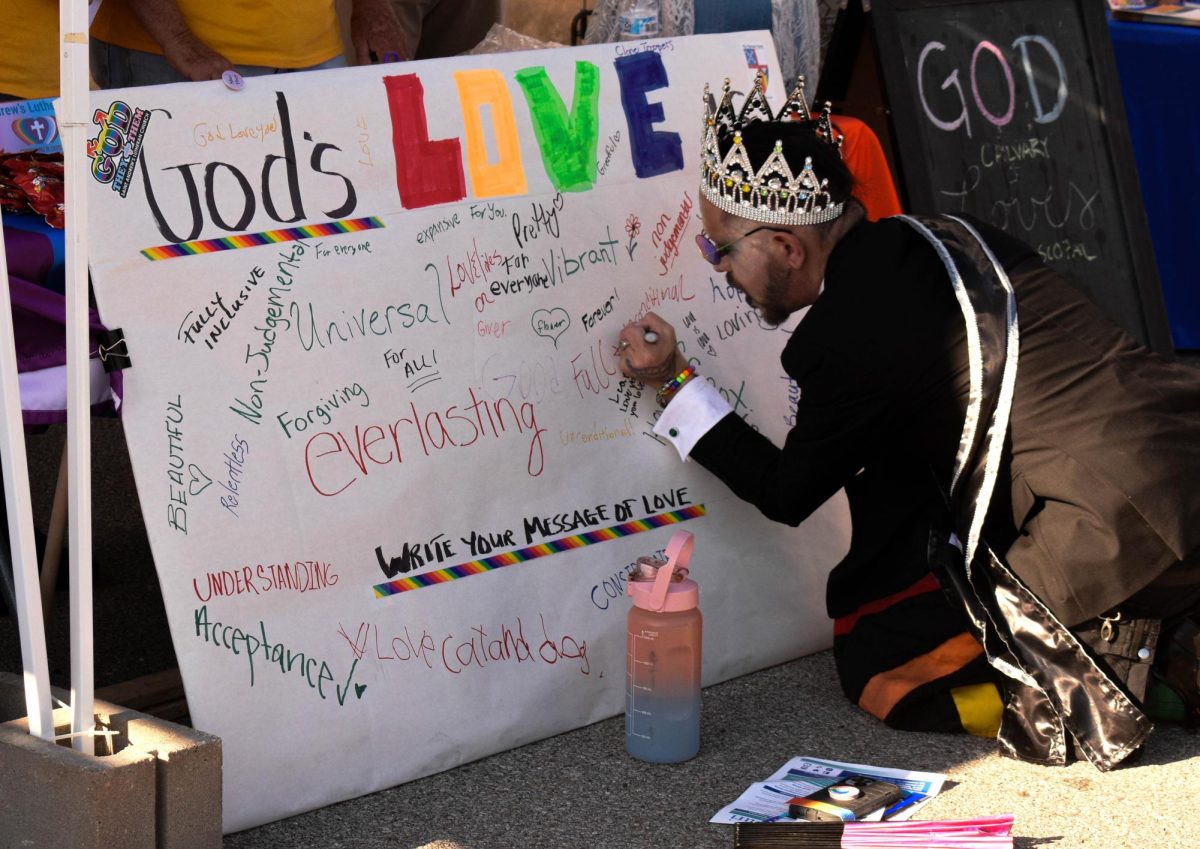The William T. Kemper Fellowship represents the highest honor for teaching excellence at MU. Each year, the fellowship, which includes a $15,000 stipend, is awarded to five MU teachers. These winners exhibit a proficiency in teaching ability and have all made a profound impact on students and colleagues alike. While their departments differ, the 2022 Kemper Fellows share the powerful ability to engage and connect with students through teaching.
Christopher Baines
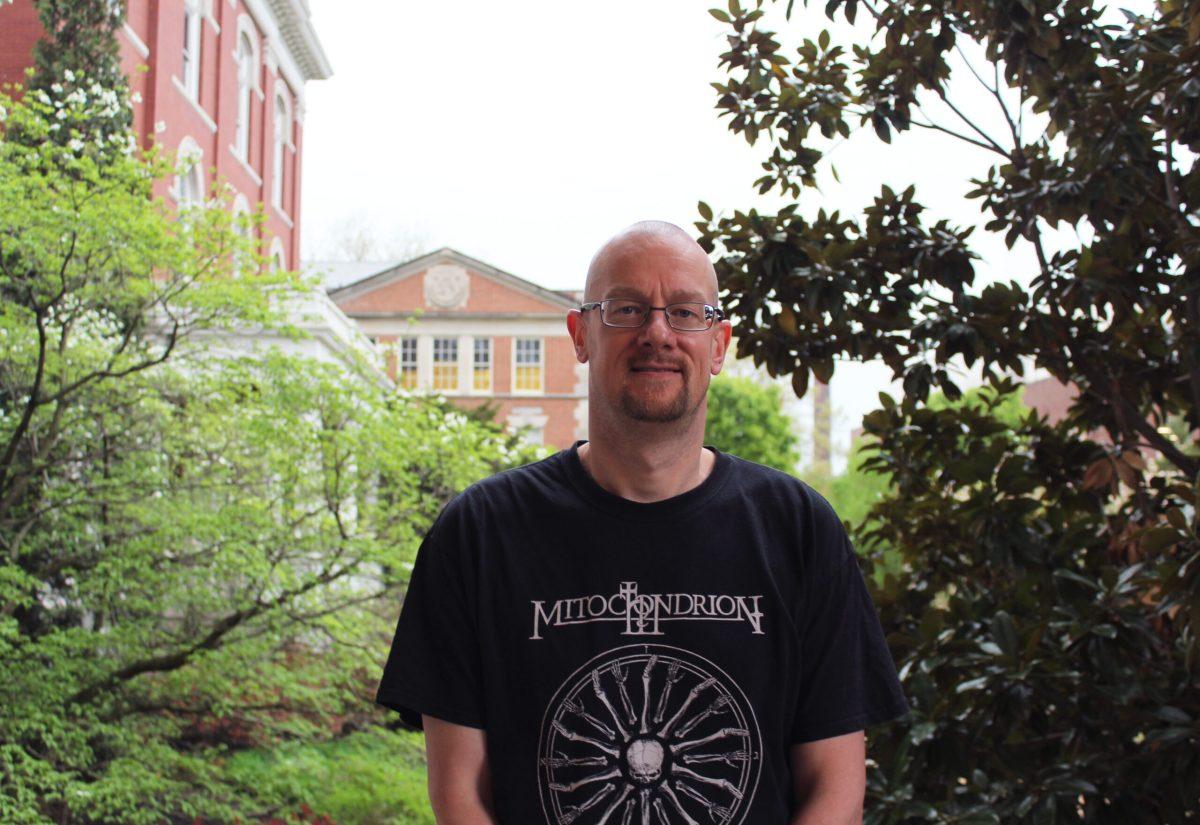
When students first meet Christopher Baines, his unique fashion sensibilities present him as a different kind of professor. Donning an arm of bracelets (made by his son), painted nails and thick rings on nearly every finger, Baines stresses humanity in everything he does.
“He’s unapologetic in a way that is compassionate, humble and tuned-in to the needs of the space and [he excels at] creating space, showing up and just being a human and letting others be humans,” colleague and friend Tamara Hancock said.
This sort of unabashed humanity on the part of Baines is what has made him so beloved and connected to his students. Throughout his time at MU, Baines has placed great emphasis upon aiding in mental health issues. After being offered a pay raise, Baines insisted on putting this money toward a greater cause. With help from MU, he set up the Baines Fund for Wellness, Mental Health and Inclusivity Work in 2020.
“So I decided, basically, what they gave me for the raise, that difference I would put back into the college,” Baines said.
Before coming to MU in 2008, Baines traversed the biomedical sciences field through research and experience in pharmacy. Baines, originally from the U.K., arrived at MU’s College of Veterinary Medicine with newfound purpose.
“I just fell in love with [teaching]; it was just like one of those sort of lightbulb moments.” “It still terrifies me. I still have a mini panic attack before every lecture, but by the end of it you’re like, ‘Wow, that was so awesome.’”
Christopher Baines
He explored his passion for cell biology research, but his teaching responsibilities became his love.
“Every single person is there because this is what they really want to do,” Baines said. “A lot of them have wanted to do this for two decades and fought tooth and nail to get here, and you can feel that. That’s what keeps me going.”
Baines wears his personality on his sleeve, maintaining a sense of relatability and honesty with his students.
“He occupies all the things that he is in his complicated package — he’s going to wear his bracelets that his child made him, he’s going to wear a heavy-metal T-shirt,” Hancock said, “but then when he’s going to lecture, he’ll still put on a suit and tie. But he’s also going to paint his nails so that they match because he’s just going to do him.”
Baines’ genuine care for his class, students and peers exudes in his behavior. The profound impact he has had at MU culminates in his recipiency of the Kemper fellowship.
“You can always improve as a teacher, and I suppose [the Kemper Award] spurs that feeling on even more,” Baines said. “It’s definitely a motivator.”
Eric Parsons
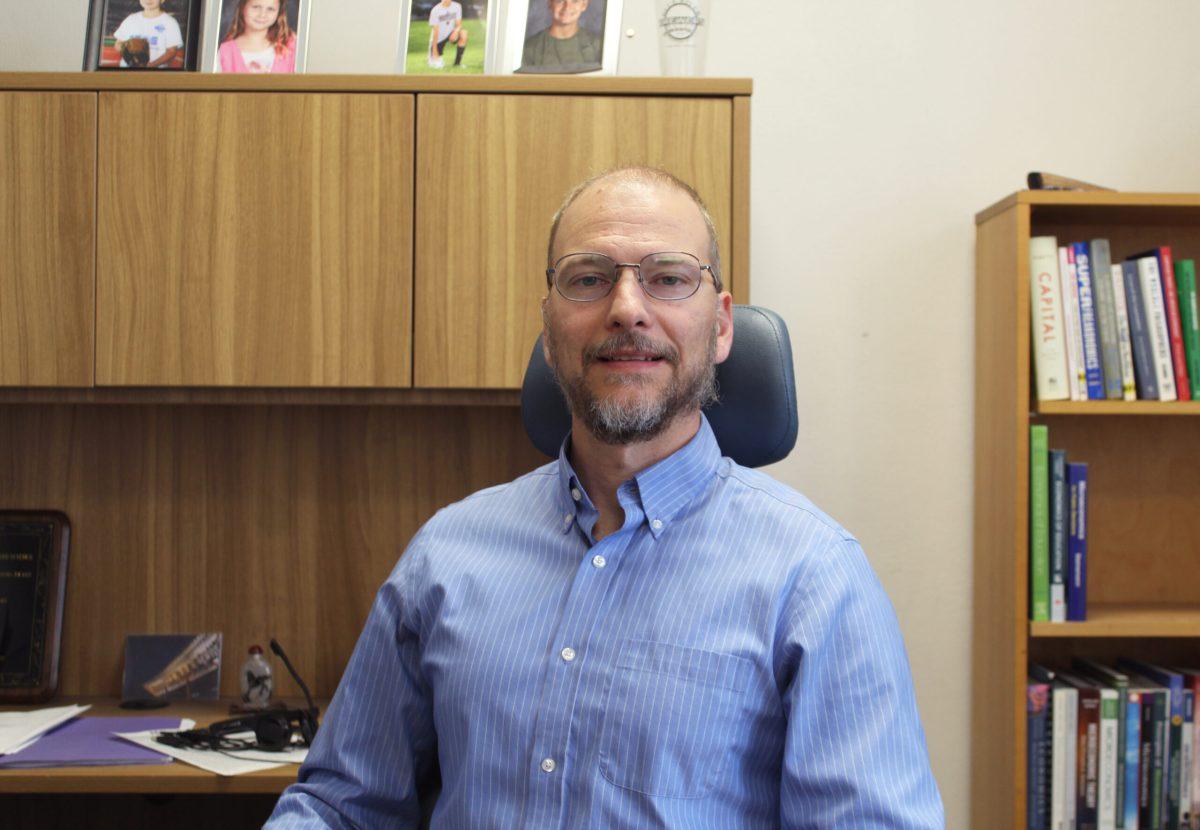
Eric Parsons is a professor with a remarkably wide reach, with nearly one-third of all MU students eventually taking one of his courses. As associate teaching professor of economics and Director of Undergraduate Studies, Parsons is in a unique position to make his impact on the student body. Having begun in economic policy research, Parsons now instructs students on the complicated world of economics with passion.
“I really like the way that [economics] helps us view and explain the world,” Parsons said. “I think if more people had a better understanding of economics, we would have more productive policy discussions, more effective policies.”
With the scope of his classes, Parsons often finds himself teaching courses with upward of 100 students.
“Anyone teaching a large lecture, to keep interest and be dynamic, you kind of have to think of yourself almost as much a performer as a teacher,” Parsons said.
This distinct attention to detail and care for his classes is evident to his students. Freshman Taylor Wulf is a student in Parsons’ Principles of Microeconomics class.
“His lectures are always interesting and organized in a way where students can easily keep up and understand the material. I’ve had a really good experience with [Parsons],” Wulf said.
Parsons has received numerous teaching awards in his decade at MU, including the Walter L. Johnson Excellence in Teaching Fellowship and the Purple Chalk Teaching Award.
“[The Kemper Award] is kind of like the Mizzou Hall of Fame of teaching. So, it’s a huge honor just to be included in that list,” Parsons said.
Eric Parsons
Parsons’ recipiency of the Kemper fellowship was a moment not only special for him but for everyone he has impacted.
“This award really matters for the students,” Wulf said. “This sends a message that he’s an outstanding teacher, which will make future students want to take his classes.”
Elizabeth Brixey
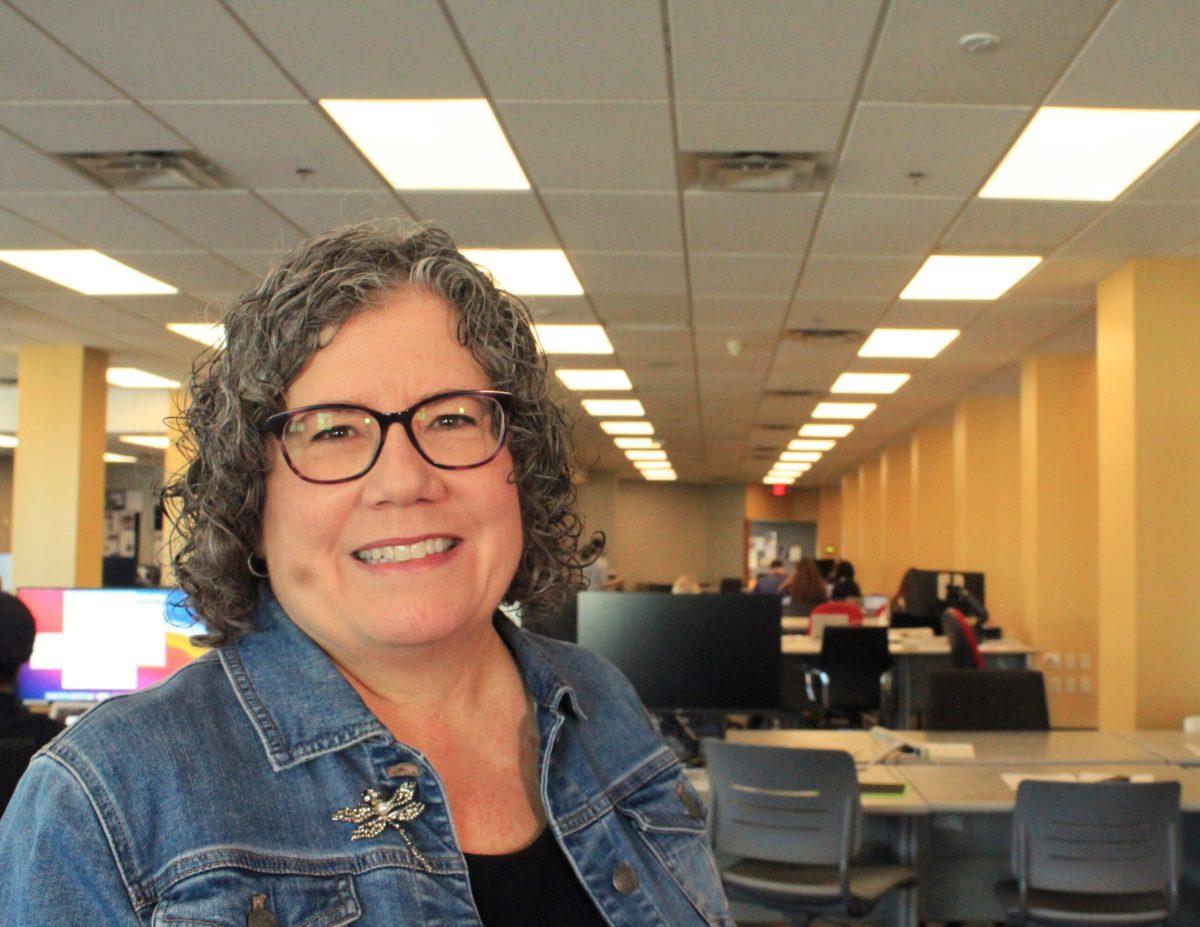
After graduating from the Missouri School of Journalism in 1985, Elizabeth Brixey was happy working in the newsroom at the Wisconsin State Journal. It was not until a good friend saw a fit for her at MU that Brixey was able to realize her potential to aid the next generation of journalists.
“I remembered what it was like to be me in J-School,” Brixey said, “I thought, maybe I have something to offer the late bloomers — the kids who don’t know where their place is, who like it but don’t quite know what that means.”
Liz Brixey
Brixey was hired as a city editor at the Missourian and associate professor at MU in 2003; it didn’t take long for her to find joy in the teaching process. Brixey expressed her love for the first day of class, claiming to have “one superpower” as a teacher: that she learns names immediately.
“Getting to know a student individually is one of the great pleasures of the job,” Brixey said. “That’s why I’ve stayed — the kids.”
Brixey takes a hands-on approach in her teaching, demanding much from her students but giving them a lot of herself in the process. Junior Sofi Zeman, an education reporter for the Missourian, is one of her students.
“I think she has this unique quality in that she sees people and understands them and where they need to grow,” Zeman said. “She’s able to take those needs and put them to work. She’s great at finding where a student needs to develop and cater their education toward reaching that goal.”
Brixey has had over 50 students recognize her as a mentor at MU’s Honors Convocations and nine at Mizzou ‘39 (achievement for outstanding seniors), a testament to the profound impact she has had on students’ lives. The significance of these special nominations is not lost on Brixey.
“They don’t have to do that; no one is saying they have to do this. A lot of times, they think I’ll never even hear about it, so to me, that’s like the highest compliment,” Brixey said
Her recipiency of the Kemper Fellowship saw a wave of jubilance from the people who Brixey has impacted. Brixey contends that she could not be the teacher she is without the context of the newsroom, the journalism school and her coworkers. But it is her students who hold this sentiment of gratitude toward Brixey herself.
“There are not a lot of people like Liz Brixey,” Zeman said. “She loves [the Missourian and the students] more than anyone I’ve ever met, and she cares about this in a way that makes other people excited to be here, and I think that’s really special.”
Lisa Bauer
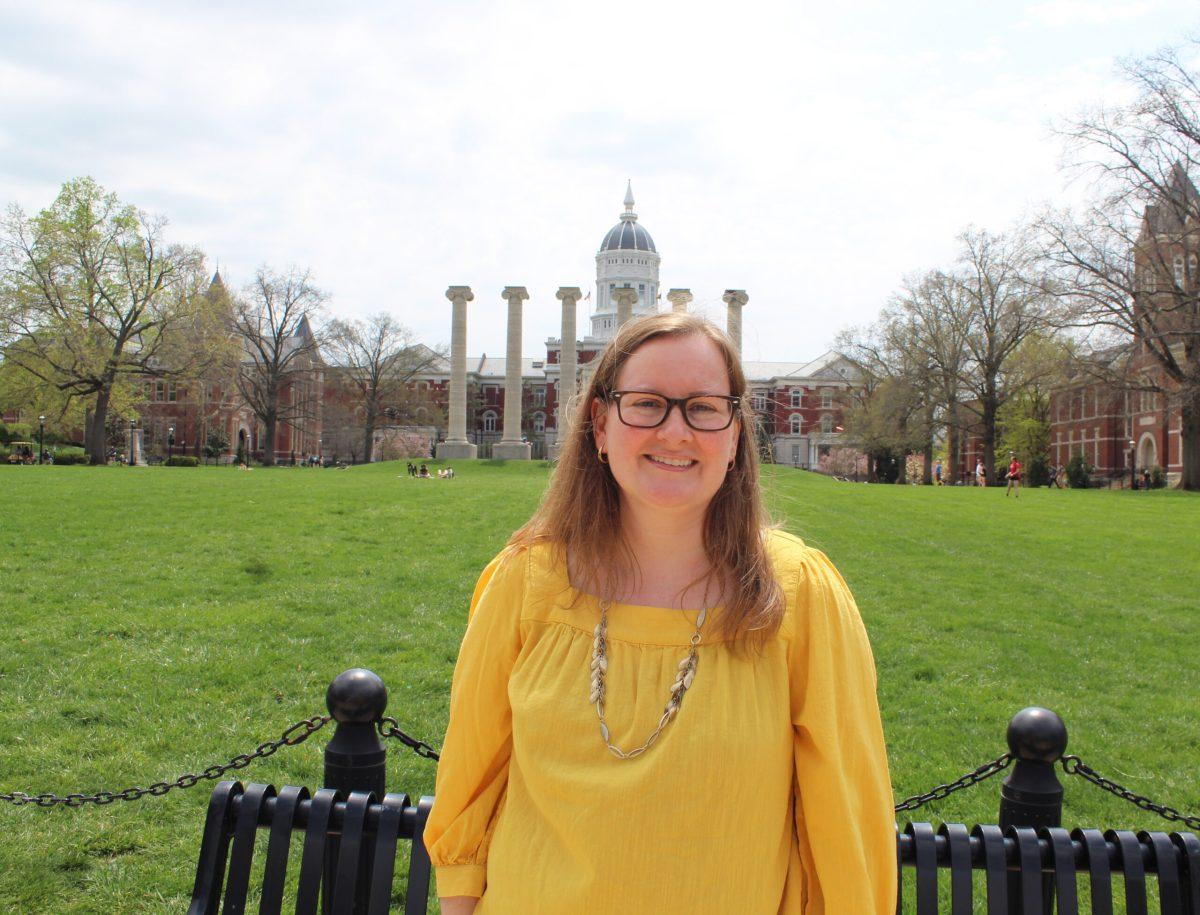
Lisa Bauer has been an MU teaching faculty member in the Psychological Sciences Department for more than 11 years, serving as one of the most influential professors in the field. While she maintains a high level of teaching excellence, teaching wasn’t always an easy choice in her early career.
“I was so shy, I could never see myself as a teacher,” Bauer said. “My first week every semester, I’m really nervous. I’m a nervous public speaker, so I never thought I’d go into teaching.”
It took Bauer a moment to calm down and find her rhythm, but once she did, she hit the ground running.
“Lisa is really a transformational teacher for students,” colleague and friend Ines Segert said. “She develops relationships with her undergraduate students, graduate students and with her colleagues in the department — she does more than just teach.”
Teaching a wide variety of classes from intros to capstones, Bauer modeled her work around those who have impacted her.
“I don’t have a script, so I’ll put a slide up and there will be words on the topic I want to talk about, but if somebody asks a question, I’ll use an example based on the question they asked,” Bauer said. “So, even when I taught the same class back-to-back, I didn’t always give the exact same lecture.”
Segert, an MU associate teaching professor and former Kemper Fellow herself, emphasized the word “empowering” in her description of Bauer. Bauer takes students with her, showing genuine investment without worry of reciprocation.
“Lisa is not someone who goes out and shouts about what she’s doing,” Segert said. “Everyone knows she’s a resource, very quietly, through individual conversations. So, I think it’s fantastic that she has this public recognition.”
After receiving several teaching awards, Bauer still struggles in grappling with the scope of her impact.
“I’m just honored to have won [the Kemper Award]. I wouldn’t have been able to do it without the advice and mentorship of students and colleagues and mentors because, honestly, I’ve learned a lot from my students over the years,” Bauer said. “I think the award really should go to everybody who helped me grow as a teacher.”
Lisa Bauer
James Noble
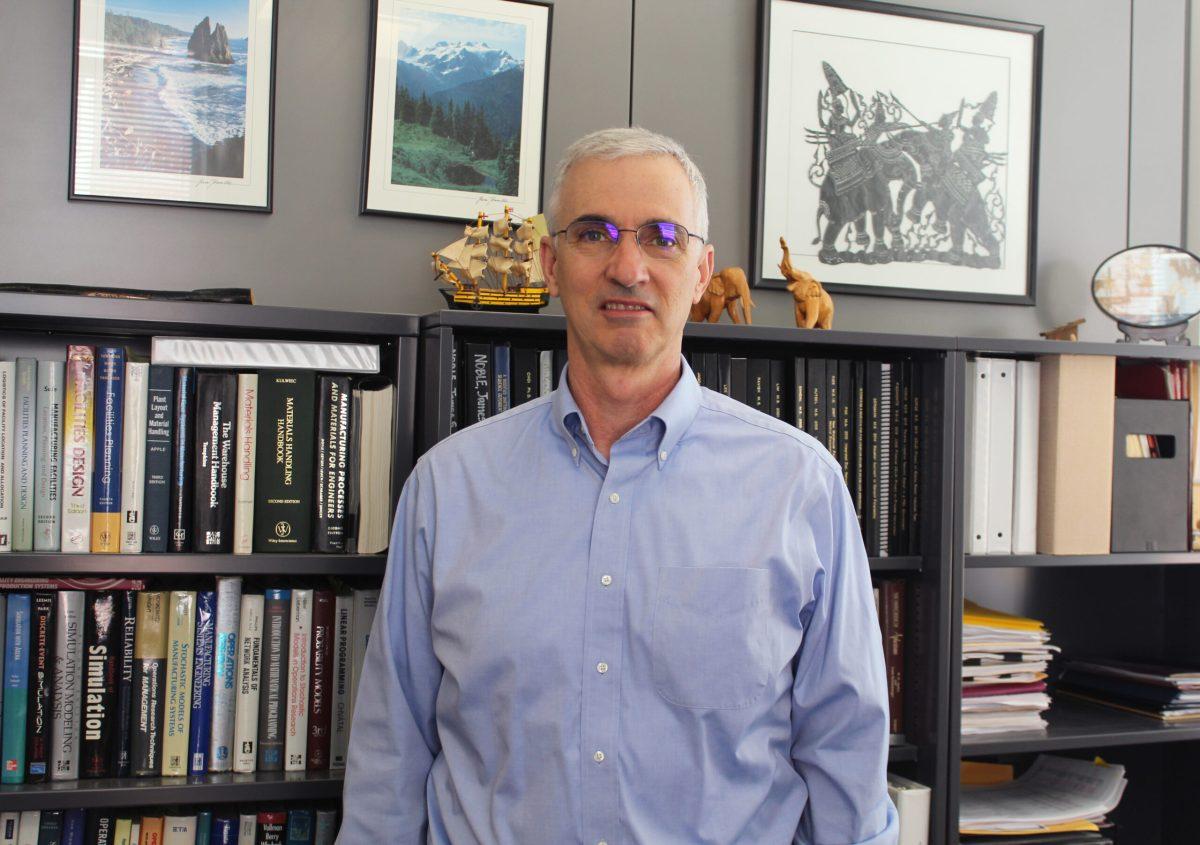
James Noble, MU professor and chair of the Department of Industrial Manufacturing Systems Engineering, has been pushing the industrial engineering field forward for over three decades.
Noble was inducted as a fellow into the Professional Society in 2019, a high recognition of industry excellence. After teaching generations of MU students, Noble has received the university honor for teaching excellence. With these two high honors, Noble has achieved what he describes as the culminations of his professional and teaching careers, respectively.
“[The Kemper Award] specifically looks at a career in teaching, and the thing that I’ve valued most is having an impact on students,” Noble said. “So, in that regard, [the award] acknowledges what my prime motivator for being a professor is.”
Noble decided to settle down at MU in 1992 to invest back into Columbia. Through his extensive industry and teaching experience, Noble has been able to hone that focus on young engineers.
“I view the research that I’m doing as an opportunity to bring students along, and so everything I do has students involved in it,” Noble said, “Ultimately, whether it’s an undergraduate student or graduate student that’s in a class or project, I see the students as our product.”
Freshman Will Mastrantuono is a student in Noble’s Introduction to Engineering course.
“[Noble] tries to expand students’ toolboxes and keep their options open,” Mastrantuono said. “Students will find a lot of difficulty in trying to keep going, but he does a great job with leveling students and keeping their head in the right place.”
Noble has the unique experience of teaching former students’ kids. Through generations of students, his passion for teaching has not wavered. He jokes that he never graduated, feeling “18 again” with every fall semester. Noble acknowledges the students for his energy and motivation, but it is his students who acknowledge his contribution.
“I feel like he’s deserved [the Kemper Award] for a long time,” Mastrantuono said. “He’s been outstanding at what he does, and his name ought to be etched into a wall somewhere already.”
Will Mastrantuono
Edited by Lucy Valeski, [email protected]










